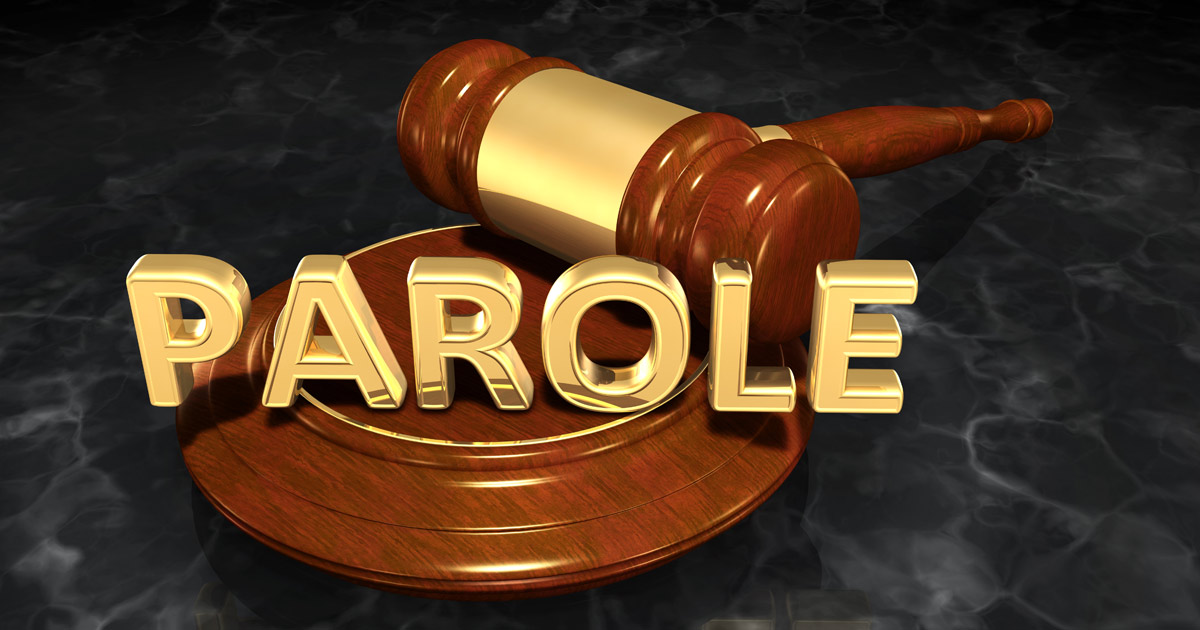The Time for Establishing a Parole Plan is NOW

By Eric Marcy
The issue of parole is an area that few consider or plan for after having been sentenced to a prison term. Parole is not guaranteed. Any individual sentenced to a prison term should be considering parole issues, if not a sentencing, then shortly thereafter and planning for that day that he or she is eligible for parole consideration.
Facing the Parole Board can be a daunting task. The parole process is not one that an individual should face without experienced counsel. While the standards for release appear straightforward, the review process is highly subjective. The Parole Act itself seems simple enough:
§ 30:4-123.53. Release of inmate
a. An adult inmate shall be released on parole at the time of parole eligibility, unless information supplied in the report filed pursuant to section 10 of P.L.1979, c. 441 (C. 30:4-123.54) or developed or produced at a hearing held pursuant to section 11 of P.L.1979, c. 441 (C. 30:4-123.55) indicates by a preponderance of the evidence that the inmate has failed to cooperate in his or her own rehabilitation or that there is a reasonable expectation that the inmate will violate conditions of parole imposed pursuant to section 15 of P.L.1979, c. 441 (C. 30:4-123.59) if released on parole at that time. In reaching such determination, the board panel or board shall state on the record the reasons therefor.
For the purposes of this subsection, “failed to cooperate in his or her own rehabilitation” shall include, in the case of an inmate who suffers from mental illness as defined in section 2 of P.L.1987, c. 116 (C. 30:4-27.2) that does not require institutionalization, that the inmate failed to fully participate in or cooperate with all prescribed treatment offered during incarceration.
b. A juvenile inmate shall be released on parole when it shall appear that the juvenile, if released, will not cause injury to persons or substantial injury to property.
While seemingly straightforward, the decision making is highly subjective, frequently based upon a record controlled by the Parole Board, and frequently based upon information the Parole Board designates as “confidential.” Such information may be collected and relied upon by the Parole Board but will not be disclosed to the individual.
It is vital that a Parole Plan is uniquely tailored to the needs of the individual. A plan which will satisfy the Parole Board that release is appropriate, that the individual will not commit another offense and will comply with all conditions imposed as a condition of parole
Additionally, the Parole Board’s discretion is broad and will not be reversed unless the Appellate Division determines that the Board has acted arbitrarily – a difficult – but not impossible standard for an individual to meet. The following are Appellate Division cases handled by Eric Marcy, Esq., which include 7 cases where the New Jersey Parole Board was reversed:
- New Jersey State Parole Board v. Cestari, 224 N.J.Super. 534, 543-544 (App. Div. 1988), certif. denied 111 N.J. 649 (1988)
- M.K.O. v. New Jersey Dep’t of Corr., DOCKET NO. A-5598-17T3 (App Div. January 17, 2020)
- Thomas v. New Jersey State Parole Bd., DOCKET NO. A-2943-13T4 (App. Div. August 3, 2015)
- Thomas v. New Jersey State Parole Bd., DOCKET NO. A-3804-15T2 (App. Div. February 8, 2017)
- Berta v. New Jersey State Parole Bd., DOCKET NO. A-2306-15T1 (App. Div. October 26, 2017)
- Roland Gebert v. New Jersey State Parole Board, DOCKET NO. A-5435-12T3, (App. Div. October 23, 2014);
- Bailiff v. New Jersey State Parole Bd., DOCKET NO. A-3127-11T2 (App. Div. Jan. 16, 2014);
- Melvins v. New Jersey State Parole Bd., DOCKET NO. A-1761-08 (App. Div. Aug. 12, 2010);
- Klingebiel v. New Jersey State Parole Board, DOCKET NO. A-5341-04, (App. Div. Aug. 11, 2008);
- K.P v. New Jersey State Parole Board, DOCKET NO. A-1470-01T5 (App. Div. Apr. 26, 2002);
Please note that past results are no guarantee of future results.
Any individual who is incarcerated and will be facing the Parole Board should be considering establishing a solid and proper Parole Plan at the earliest possible time. Creating a compelling parole plan that is unique to the needs of the individual, that addresses the concerns of the Parole Board, that takes into consideration the law, and is prepared to anticipate “confidential” information that may be used to deny parole is critical to obtaining parole upon first eligibility. Waiting until parole has been denied is a recipe for failure and the unfortunate continued denial of one’s liberty.
When facing upcoming release on parole, the denial of parole, or a revocation of parole, you need an attorney who has experience in this area of law.
Our criminal defense and parole lawyers at Lyons & Associates, P.C. will vigorously defend you as you go through the criminal justice and parole process. Call us at 908-575-9777 or contact us online today to schedule a free consultation. We have offices located in Somerville and Morristown, New Jersey, and represent clients throughout New Jersey including, but not limited to, clients throughout Somerset County, Morris County, Middlesex County, Union County, Essex County, Bergen County, Hunterdon County, Warren County, Sussex County, Passaic County, and Monmouth County.


